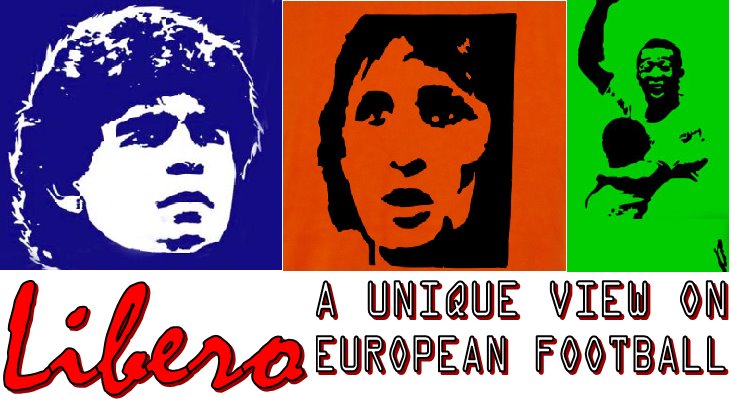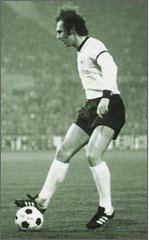Perennial underachievers Spain took on Russia as they finally look to add to the 1964 European Championship success inspired by Luis Suarez. As they attempt to find the correct balance to win the tournament, Arsenal’s Fabregas started from the bench as Xavi started as playmaker with Villarreal’s Marcos Senna supporting him in the holding role. Against them Gus Hiddink leads a Russia side shorn of star striker Pavel Pogrebnyak and playmaker Andrei Arshavin in hope of upsetting one of the tournament favourites as Romania did so to France yesterday. A national hero in South Korea and having also led Australia to the World Cup, his international achievements cannot be questioned.
Despite being unbeaten for 18 months with victories over Italy and France, Spain played with Villa up alone being supported with a creative midfield. The inclusion of Torres may have affected the style of play according to some (having only scored twice in 18 months for his country), despite his qualities as they strained to wins in their build up to the Euro. The Liverpool hit man cut in from the left flank but hit his shot weakly. Soon after Real Madrid’s Sergio Ramos played a lofted pass to Villa, looking to find a new club, who shot over under pressure from the Russian defenders. As the Russians looked to break up the Spanish monopoly of the possession with a few hard tackles, which Referee Konrad Plautz allowed, Russia almost stole the advantage with a fine spell of passing in the channels behind the full-backs and cutting the ball back across goal as Semshov nearly swept in, if not for the Spanish defence who closed in swiftly.
Torres ran down the channel from a wonderful Capdevila pass and lost his defender with a lucky break but had brilliant composure to find Villa, who slotted home into the empty net with the keeper already committed. Any criticisms of their partnership appeared to disappear, yet as Spain were celebrating, Russia caught Spain asleep as the cut-back evaded all of the Spanish defence and fell to Zyryanov, who sidefooted his shot against the post. Immediately Spain countered and Torres was found one on one against Akinfeev but the angles were against him. Villa was found by an Iniesta through ball and shot at the Russian keeper despite an acute angle, drawing a corner.
Iniesta was beginning to find room to run into and their ‘tika-taka’ passing patterns created openings for ‘La Furia Roja’ but Torres shot weakly at Akinfeev. Spain patiently passed at the back for an opening until Xavi played Torres in down the flank and he turned his man with ease and passed to David Silva whose shot was blocked for a corner. Pavluchenko first hit a free kick into the wall then fired the ball against the bar, which didn’t count as he fouled his marker. Yet from another poor Russia dead ball, Spain broke with wonderful agility as Capdevila gathered the ball and laid off the ball to Iniesta, who dropped his shoulder one way than the other, confusing his marker as he slipped a perfectly timed pass into Villa, who slotted home a second time, through the keeper’s legs.
As these Group D sides threatened to match yesterday’s fine performance between the Dutch and the Italians, with the Russians playing their part with adventurous forward play, the tournament has shown signs of bursting into life. The Russians started with a high tempo and plenty of possession as Bystrov headed softly into the arms of Casillas. As Spain’s influence in midfield waned, Aragones brought on Arsenal’s Fabregas for Torres, who did not appear satisfied at all, concerning the early timing of the substitution. The young Spaniard made a fine run to open up space for Villa to run into as he shot into the grateful arms of Akinfeev. Yet Russia’s increasing influence allowed Bilyaletdinov to shoot, albeit wide of Casillas’ goal. David Silva almost added a third for Spain if not for a final, tackle to allow the ball to be gathered by the Russian keeper.
Iniesta made way for Santi Cazorla of Villarreal, as Aragones perhaps used the second half to find other styles of play to use later in the tournament. As Villa played in Fabregas, who made the run but showed his lack of pace as Akinfeev stole the ball before him. Later Ramos burst down the right flank and crossed for Villa, but Aniukov cut the ball out in an example of fine defending. Senna headed at Akinfeev from the resulting corner and had another attempt which the 22 year old Russian keeper caught with ease.
The Spanish queue for a shot, with Cazorla having the best opening but he delayed and eventually David Silva fired high over the bar. After their slow start, Spain came back into the game and ended it as Fabregas found Villa with a wonderfully weighted pass, and he turned his defender before slotting home at the near post fooling the keeper. As they dropped off the tempo with the game won, Russia grabbed a consolation goal with a well worked corner as Pavluchenko thumped in a header at the far post. The Spanish relaxed in defence as Semak controlled and tamely volleyed the ball straight at Casillas after the ball was pumped back in.
Then the man of the match David Villa broke and held the ball before lifting the ball over his defender to Xavi, a wonderfully weighted pass, with the Barcelona midfielder volleying at Akinfeev, and Fabregas headed into an empty net to round up a wonderful performance by the Spanish. Cesc’s passing and off the ball running created space for his team-mates before scoring in a fine 35 minutes of play. No doubt Villa raised his transfer value by £10 million or so, that is certain but, in looking at Spain, we have seen false horizons before, is this another?
Finally both sides scored in a Euro 2008 game, while this game was also the highest scoring game in the tournament so far, with plenty of entertainment. Hopefully it continues.
Spain 4 – 1 Russia FT
The holders Greece were written off once again despite improving since their triumph four years ago. Otto Rehhagel has a tough job to repeat his success in Portugal, yet a collection of tough defenders, a deep-lying midfielder in Basinas and a free-scoring forward in Fanis Gekas could spring another surprise. Yet an inconsistency in their performance has made Otto’s job more about striking a balance between Jekyll and Hyde. In contrast, Sweden relied on the evergreen Henrik Larsson and Zlatan Ibrahimovic, who hasn’t scored for his country in his last 14 games, with injury-prone ex-Arsenal player Freddie Ljungberg captaining the side.
Charisteas, who scored the winner in 2004, was busy in the opening stages, as he was booked for an excited lunge on Hansson, while soon after he burst down the right side and cut into the box, but ended a fine run with a scuffed shot. The Swedes reacted with some patient possession football and a Svensson volley from a cleared corner. Another fine move was made by the recipient of the final ball was clearly offside. As the Swedes looked to create the openings in this clash of the counter-attacking sides, Ljungberg chipped the ball forward for Ibrahimovic to help on, but his flick fell just over the bar. After a very slow tempo opening in a match between two counter attacking sides, the Greeks went forward as Juventus-bound Mellberg was forced to head over his own bar.
Wilhelmsson back heeled to Larsson, who was unwilling to shoot and made one pass too many as another move broke down. As the Greeks were content at sitting deep and soaking up moderate Swedish pressure, with the crowd booing their cautious passing across the back four, it was up to their opponents to score to bring the defending champions more into the game. They countered as Charisteas ran down the right and shot high at the near post but Isaksson had it covered. To be honest the most interesting moment in the first half was a seemingly painful injury to Zlatan Ibrahimovic, as Wilhelmsson’ cross from the left caused few problems to a side, which is in its element when defending.
Sweden finally got in behind the deep lying Greeks as Wilhelmsson ran in and lobbed the veteran Nikopolidis, but lacked the composure to finish accurately as the ball landed behind the goal. There wasn’t much action as almost every Swedish attack was ended by the wrong pass or movement as the Greeks looked to counter with Giorgios Samaras replacing Gekas at half time to provide a focal point with which to release any prolonged pressure on their defence. Sweden appeared to forget all defensive duties as Karagounis was allowed to shoot on two occasions but the defence recovered sufficiently to block both attempts and the ball to land in Isaksson’s arms on the latter occasion.
Yet as all were about to fall into a boredom induced coma, Zlatan Ibrahimovic scored with a stunning strike after a one-two with Larsson, to score his first international goal since October 2005. So disappointing against English opposition, perhaps British viewers could see ho highly rated the Inter attacker is on mainland Europe. Rehhagel threw on another striker to regain the lead but Sweden attacked once more and Ljungberg should have made it two but his shot was saved and Elmander attempted to lob the (for once) disorganised Greek defence and the panic which this induced allowed Hanssen to score in the scrappiest goal this tournament so far.
Four years ago, the Greeks were seen as the freshest side in Portugal, yet as Ansas fell victim to cramp on 82 minutes, one could see all the omens turning away from them. Torosidis almost brought a goal back as he burst into the area and shot from a narrow angle, when perhaps going down to gain a penalty would have been the better option. Zlatan’s goal was naturally the high point of a woeful game.
While we may despair of Greece’s tactics, these were similar to what won them the tournament in Lisbon and they still have an outside chance of reaching the quarter finals. The two winners on the opening match day of Group D will meet on Saturday in an intriguing prospect.
Greece 0 – 2 Sweden FT
Wednesday, 18 June 2008
Subscribe to:
Post Comments (Atom)



No comments:
Post a Comment